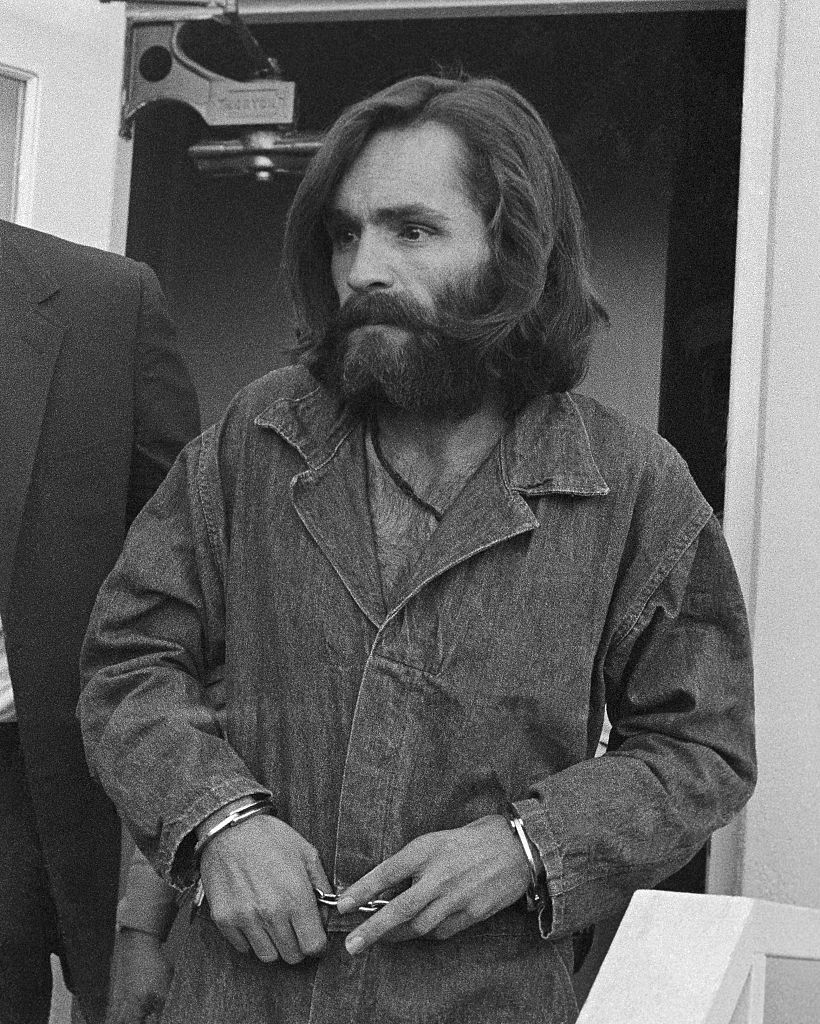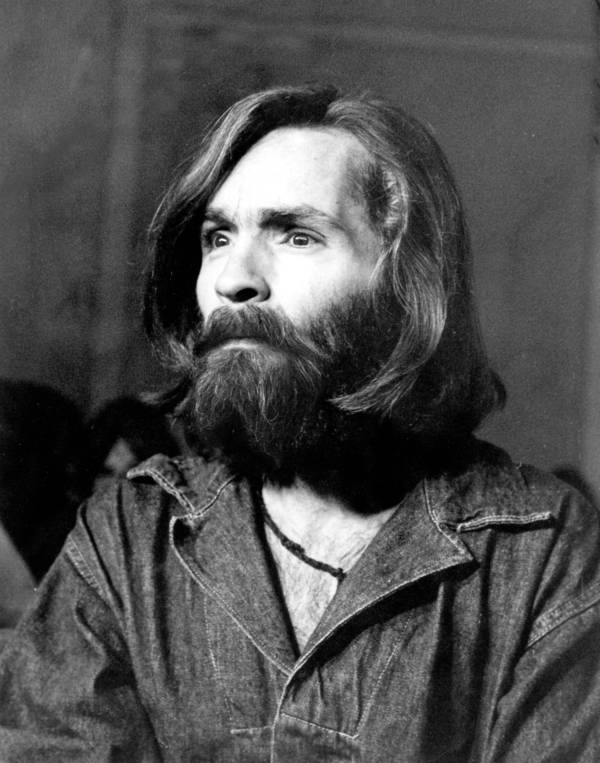Charles Manson Jr.: The Dark Legacy And Untold Story
Charles Manson Jr., one of the most notorious figures in American history, remains a subject of fascination and horror for many. His name evokes images of chaos, violence, and manipulation, leaving an indelible mark on the cultural psyche. This article delves deep into his life, crimes, and the lasting impact of his actions on society. If you're intrigued by the dark corners of history, this is a must-read.
Despite being incarcerated for decades, Charles Manson Jr.'s influence transcends his physical presence. His ability to control and manipulate others has been studied extensively, making him a focal point for psychologists, criminologists, and historians alike. His story serves as both a cautionary tale and a window into the darker aspects of human nature.
Understanding Charles Manson Jr. requires more than just a surface-level examination of his crimes. It demands a comprehensive look at his upbringing, personality, and the socio-political climate of the 1960s. This article aims to provide an in-depth exploration of these elements, offering readers a clearer picture of the man behind the myth.
Read also:Evangeline Lilly Bikini A Closer Look At Her Beachwear Style And Confidence
Biography of Charles Manson Jr.
Early Life and Childhood
Charles Manson Jr. was born on November 12, 1934, in Cincinnati, Ohio. His early life was marked by instability and neglect. Raised by a single mother who struggled with alcoholism, Manson's formative years were anything but nurturing. Records indicate that he was often left to fend for himself, leading to a series of run-ins with the law from a young age.
By the age of 13, Manson had already begun a life of petty crime, which escalated over the years. His troubled childhood set the stage for the person he would become, shaping his worldview and influencing his behavior later in life.
Data and Personal Information
Below is a summary of Charles Manson Jr.'s personal information:
| Full Name | Charles Milles Manson |
|---|---|
| Date of Birth | November 12, 1934 |
| Place of Birth | Cincinnati, Ohio |
| Date of Death | November 19, 2017 |
| Place of Death | Bakersfield, California |
| Occupation | Criminal, Cult Leader |
Charles Manson Jr.'s Rise to Infamy
The Formation of the Manson Family
In the late 1960s, Charles Manson Jr. gathered a group of followers, collectively known as "The Family." This cult-like organization became infamous for its involvement in a series of brutal murders, including the high-profile killing of actress Sharon Tate. The Family's members were drawn to Manson's charismatic personality and his apocalyptic vision of a race war, which he referred to as "Helter Skelter."
According to historical records, Manson's ability to manipulate his followers was unparalleled. He used a combination of psychological tactics, including isolation, fear, and reinforcement, to maintain control over the group. This control ultimately led to the tragic events that would define his legacy.
The Crimes of Charles Manson Jr.
The Sharon Tate Murders
On August 9, 1969, members of The Family, acting under Manson's orders, invaded the home of Sharon Tate and her friends. The brutal murders shocked the nation and brought widespread attention to Manson's name. The victims included Tate, who was eight months pregnant, and four others.
Read also:Discover The Best Ways To Buy Cbd In Miami A Comprehensive Guide
Law enforcement officials later revealed that Manson had chosen the victims randomly, using their wealth and status as a symbol of the society he despised. The murders were part of Manson's plan to incite a race war, a vision he believed would lead to his eventual rise to power.
Psychological Profile of Charles Manson Jr.
Understanding the Mind of a Cult Leader
Psychologists have long been fascinated by Charles Manson Jr.'s ability to control others. His personality traits, including narcissism, charm, and manipulation, allowed him to dominate the lives of his followers. Studies suggest that Manson's upbringing and early experiences contributed significantly to his psychological makeup.
Research indicates that individuals like Manson often exhibit a combination of traits that make them both charismatic and dangerous. Their ability to exploit vulnerabilities in others is a hallmark of their leadership style, making them uniquely capable of leading others down destructive paths.
The Impact of Charles Manson Jr. on Society
Cultural and Social Implications
Charles Manson Jr.'s actions had a profound impact on American society. The murders he orchestrated not only shocked the nation but also led to increased scrutiny of cults and their activities. Law enforcement agencies began to take a more proactive approach to monitoring and dismantling such groups, recognizing the potential dangers they posed.
Moreover, Manson's story has been the subject of numerous books, films, and documentaries, ensuring that his legacy endures. While some view him as a symbol of evil, others see him as a tragic figure whose life was shaped by circumstances beyond his control.
Legal Proceedings and Incarceration
The Trial and Sentencing
Charles Manson Jr.'s trial, which began in 1970, captivated the nation. The proceedings were marked by sensationalism and controversy, with Manson himself making headlines for his disruptive behavior in court. Ultimately, he was convicted of first-degree murder and sentenced to life in prison.
Throughout his incarceration, Manson remained a polarizing figure, receiving both threats and letters of support from admirers. Despite his confinement, his influence persisted, with some individuals continuing to idolize him as a symbol of rebellion and counterculture.
Charles Manson Jr.'s Influence on Popular Culture
Depictions in Media and Literature
Charles Manson Jr.'s story has been adapted into various forms of media, including films, documentaries, and books. These adaptations often explore the psychological and social aspects of his life, offering different perspectives on his actions and motivations. Some notable works include "Helter Skelter" by Vincent Bugliosi and "Manson: The Life and Times of Charles Manson" by Jeff Guinn.
These portrayals contribute to the ongoing fascination with Manson's life and crimes, ensuring that his story continues to resonate with audiences worldwide.
Lessons Learned from Charles Manson Jr.
Preventing Future Tragedies
The story of Charles Manson Jr. offers valuable lessons for society. It highlights the importance of understanding the psychological factors that contribute to cult formation and the dangers of charismatic leadership. By studying cases like Manson's, experts hope to prevent similar tragedies in the future.
Efforts to educate the public about the warning signs of cult activity and the dangers of blind obedience are crucial. By promoting critical thinking and fostering a culture of skepticism, society can better protect itself from the influence of individuals like Manson.
Conclusion: Reflecting on Charles Manson Jr.'s Legacy
Charles Manson Jr.'s life and crimes have left an indelible mark on history. His ability to manipulate others and his involvement in some of the most notorious murders of the 20th century make him a figure of both fascination and revulsion. Understanding his story is essential for gaining insight into the darker aspects of human nature and the potential dangers of unchecked power.
We invite you to share your thoughts and reflections on this article. If you found it informative, please consider sharing it with others who may be interested in learning more about Charles Manson Jr. and the lessons his life teaches us. For more articles on history, psychology, and sociology, explore our other content and continue your journey of discovery.
Table of Contents
- Biography of Charles Manson Jr.
- Charles Manson Jr.'s Rise to Infamy
- The Crimes of Charles Manson Jr.
- Psychological Profile of Charles Manson Jr.
- The Impact of Charles Manson Jr. on Society
- Legal Proceedings and Incarceration
- Charles Manson Jr.'s Influence on Popular Culture
- Lessons Learned from Charles Manson Jr.
- Conclusion: Reflecting on Charles Manson Jr.'s Legacy


